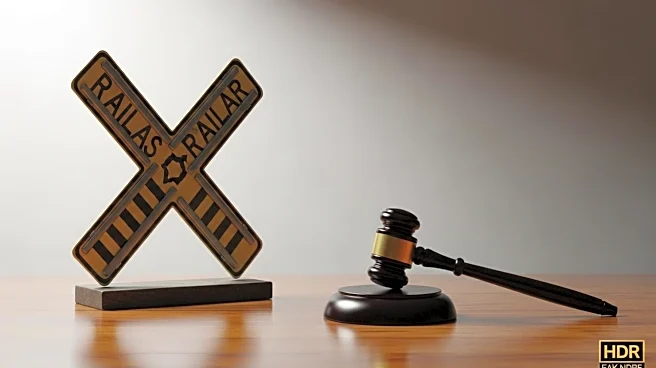What's Happening?
Unions representing approximately half of the Long Island Rail Road's workforce are threatening to strike if their demands are not met. Governor Kathy Hochul is being urged to publicly disclose these demands to highlight the issues at stake. The LIRR, the busiest commuter railroad in the U.S., faces challenges due to outdated operational rules and significant overtime costs. These rules, originally designed for private railroads, have led to inefficiencies and high costs for taxpayers. The unions involved include the Brotherhood of Locomotive Engineers, Brotherhood of Railway Signalmen, International Association of Machinists, International Brotherhood of Electrical Workers, and Transportation Communications Union. Negotiations have stalled over proposed changes to work rules, despite offers of raises exceeding inflation rates.
Why It's Important?
The potential strike could disrupt the daily commute for hundreds of thousands of riders, highlighting the broader issue of inefficiencies within the LIRR. The outdated rules and high overtime costs place a financial burden on taxpayers and commuters. Governor Hochul's decision to reveal union demands could shift public opinion and pressure unions to negotiate more effectively. The situation underscores the need for reform in public transportation systems to ensure cost-effective and reliable service. The outcome of these negotiations could set a precedent for how public agencies handle union demands and operational inefficiencies.
What's Next?
Governor Hochul may choose to publicly disclose the union demands, potentially influencing the negotiation process. If the strike proceeds, it could lead to significant disruptions in service, prompting further discussions on reforming LIRR's operational rules. Stakeholders, including downstate Republicans, are expected to support the governor and LIRR leadership in advocating for public interest at the bargaining table. The resolution of this issue could lead to changes in how public transportation agencies negotiate with unions and manage operational costs.










